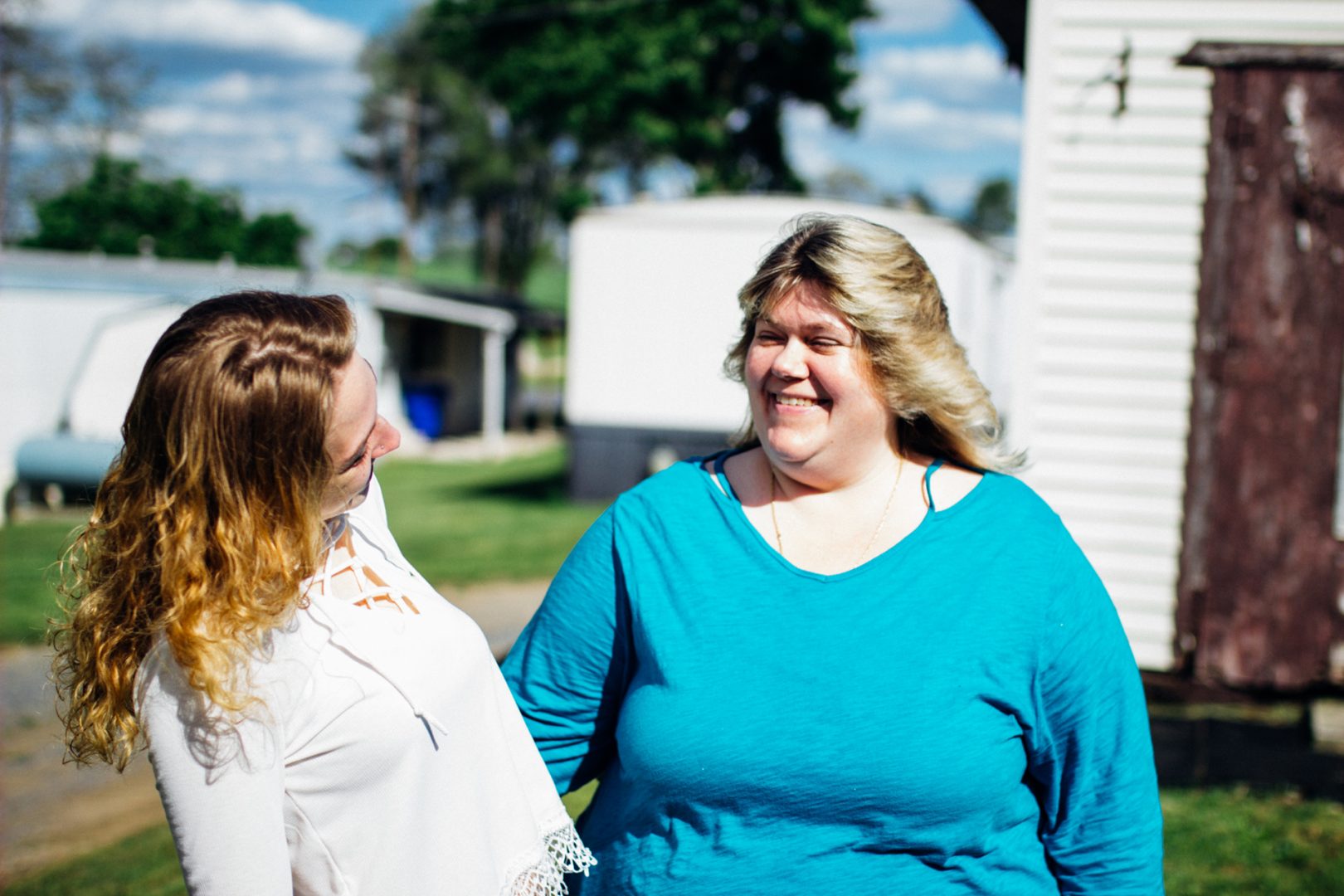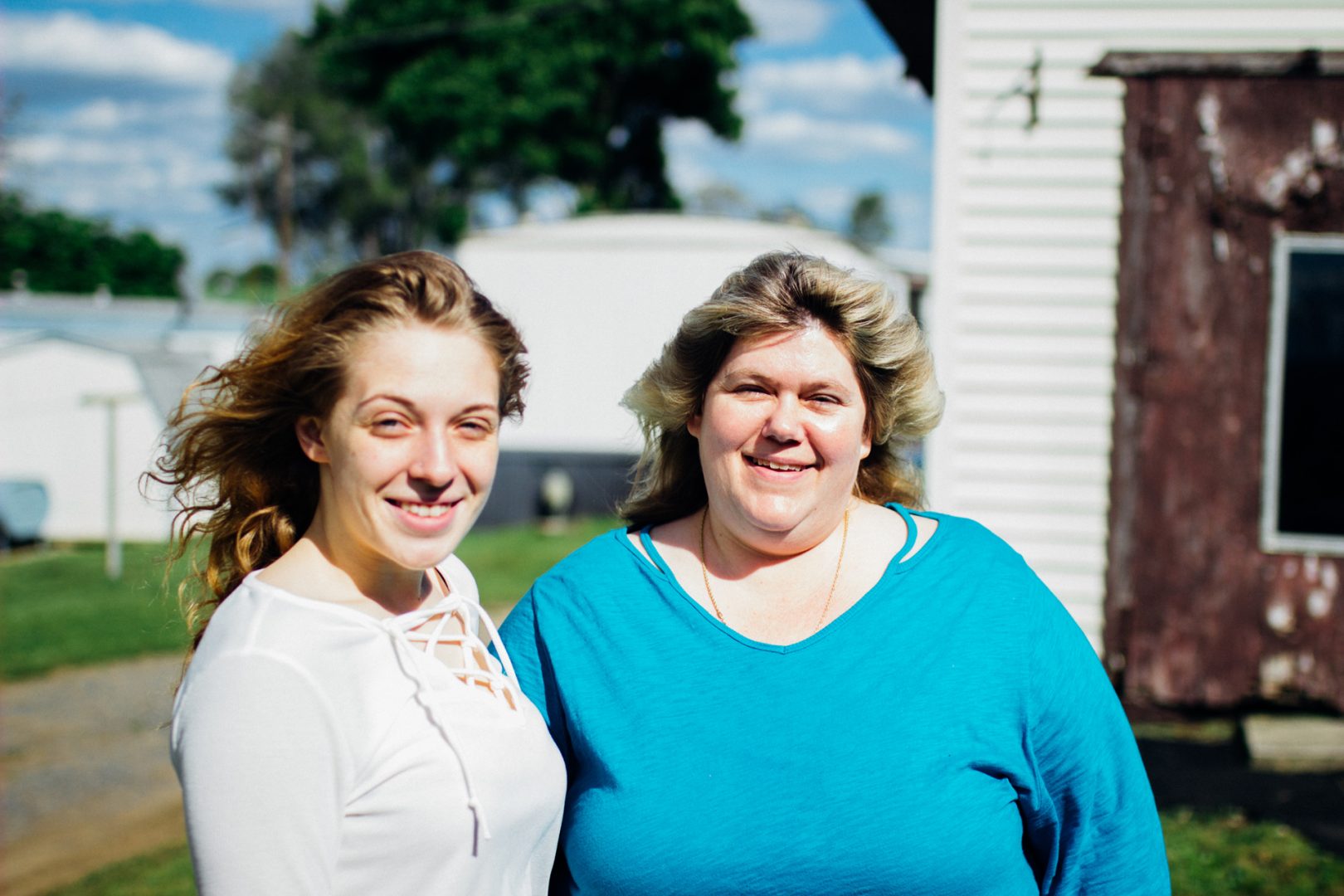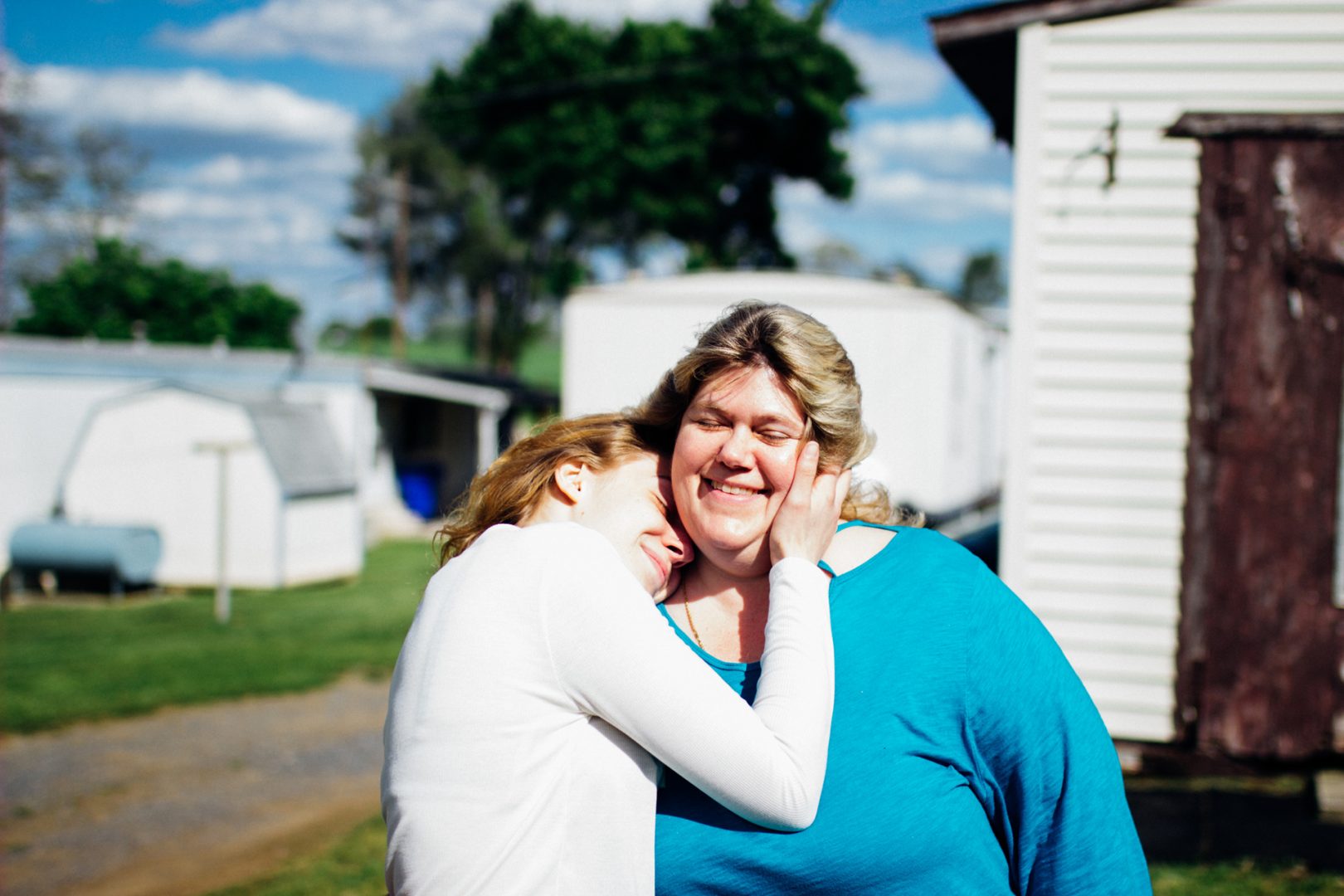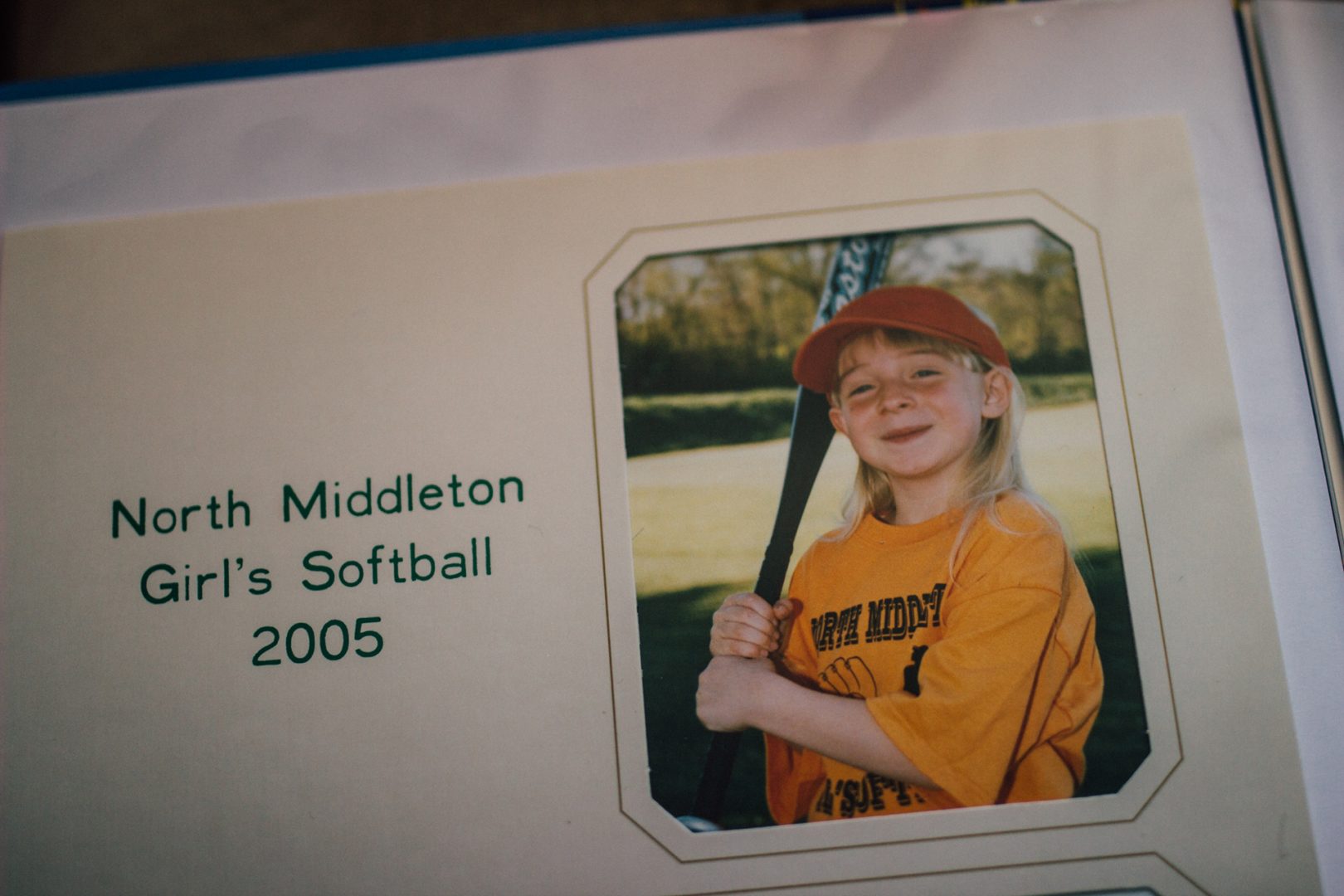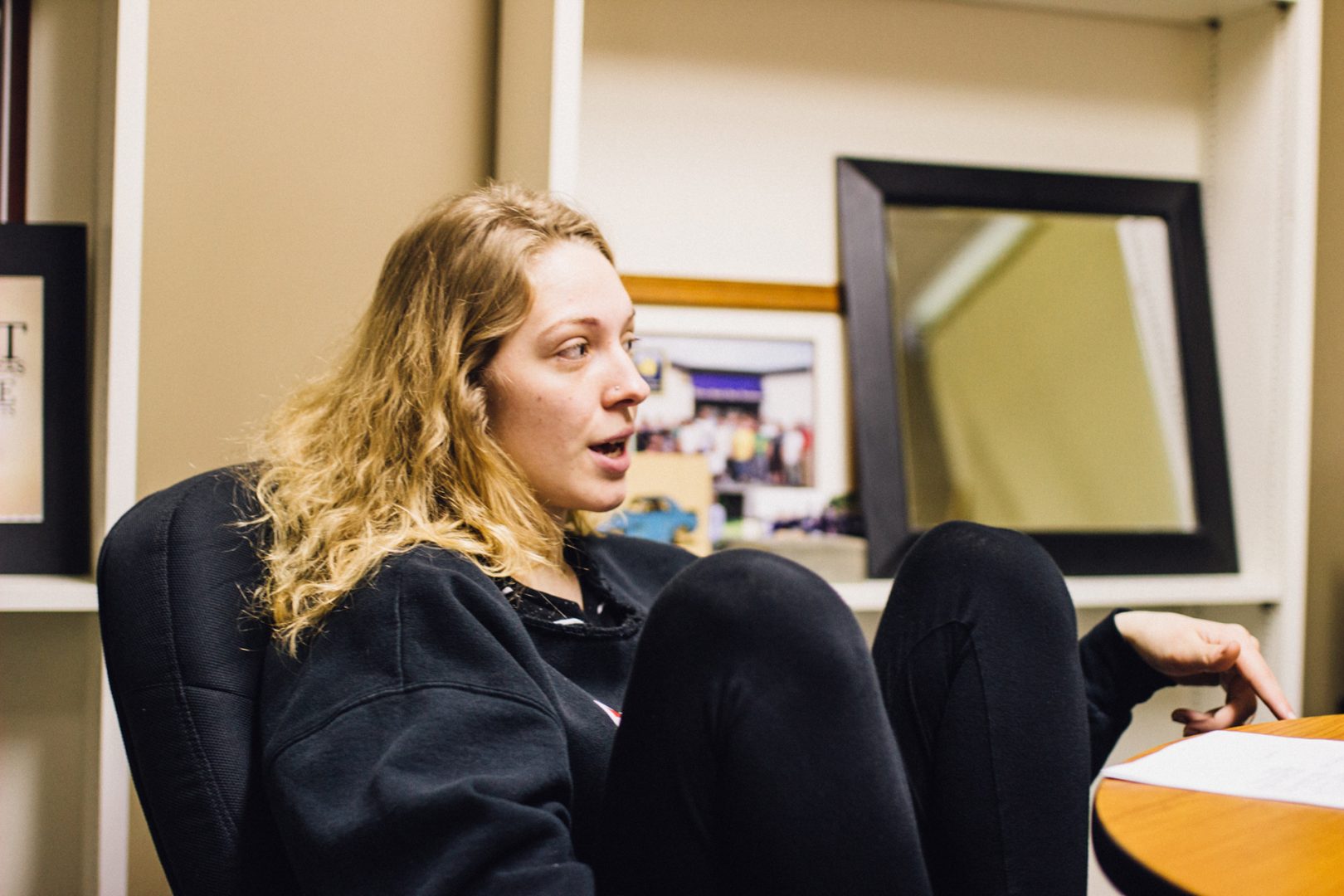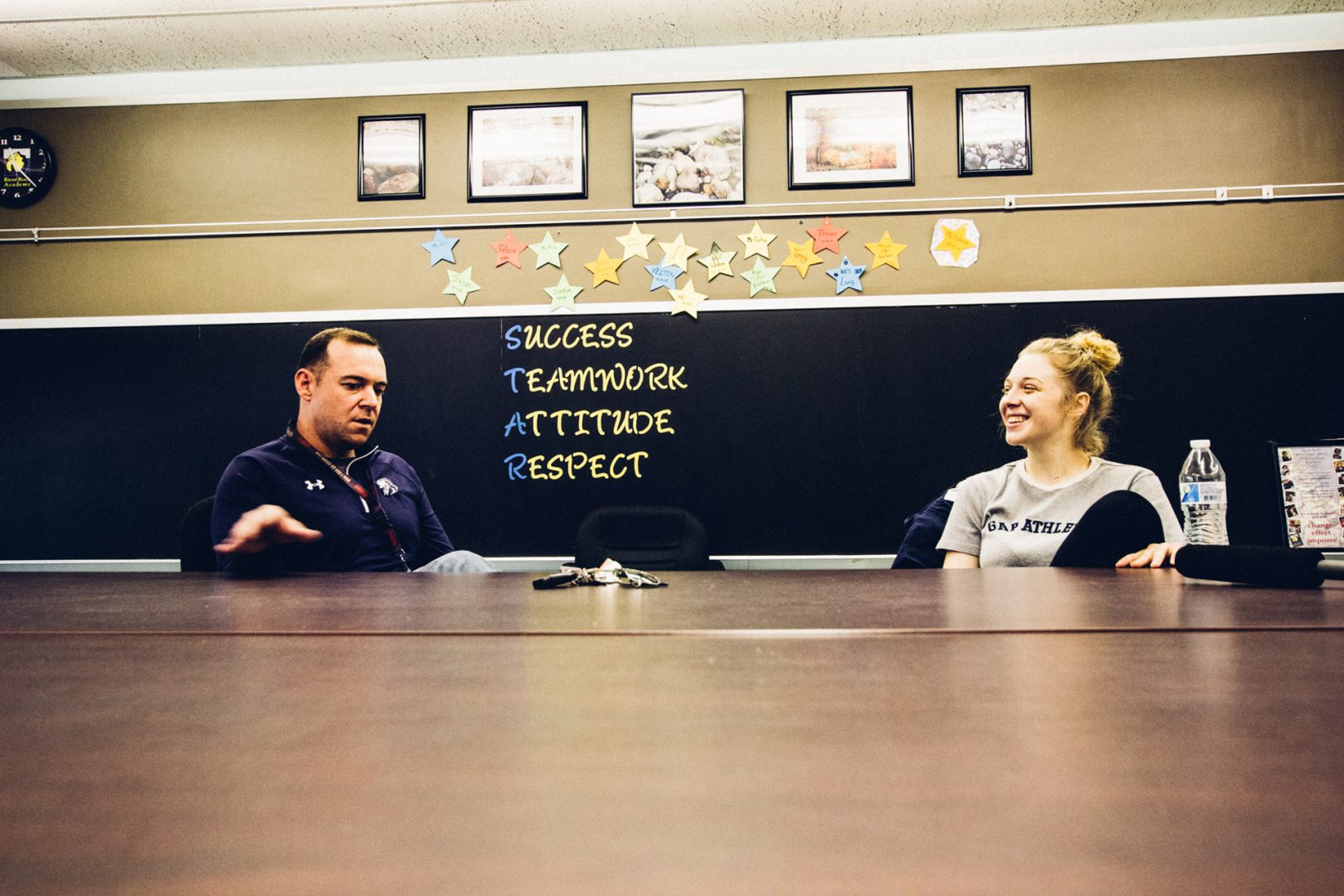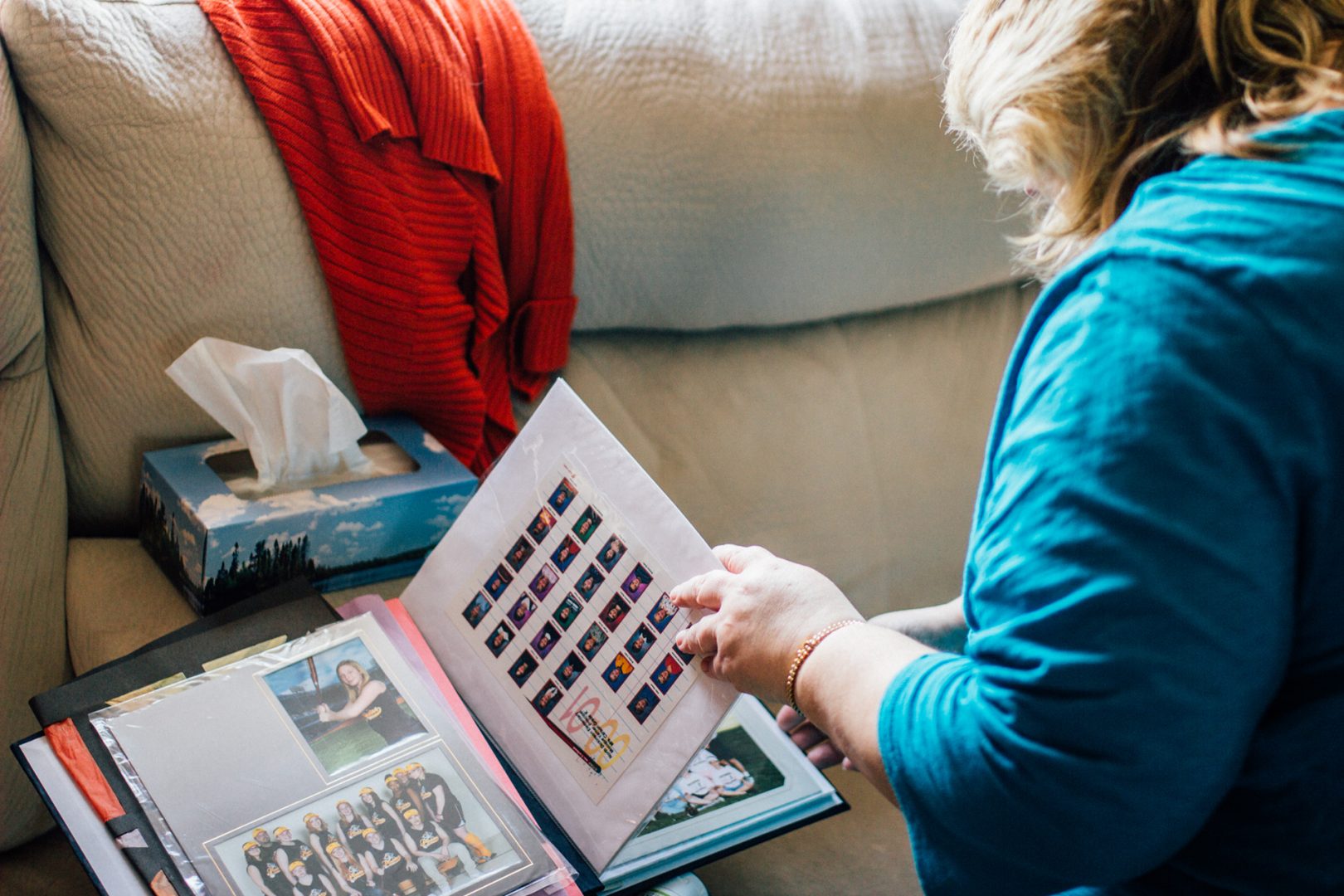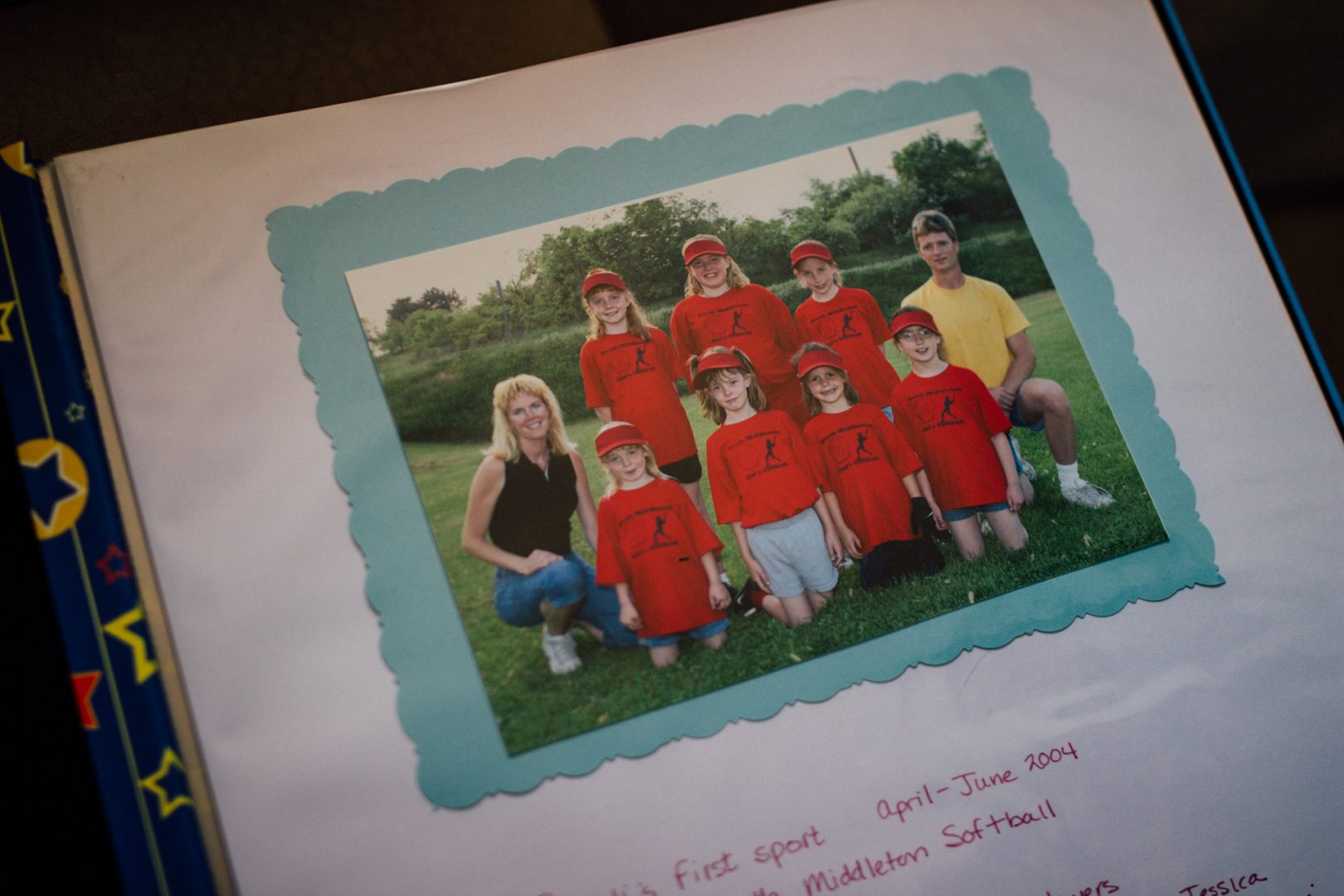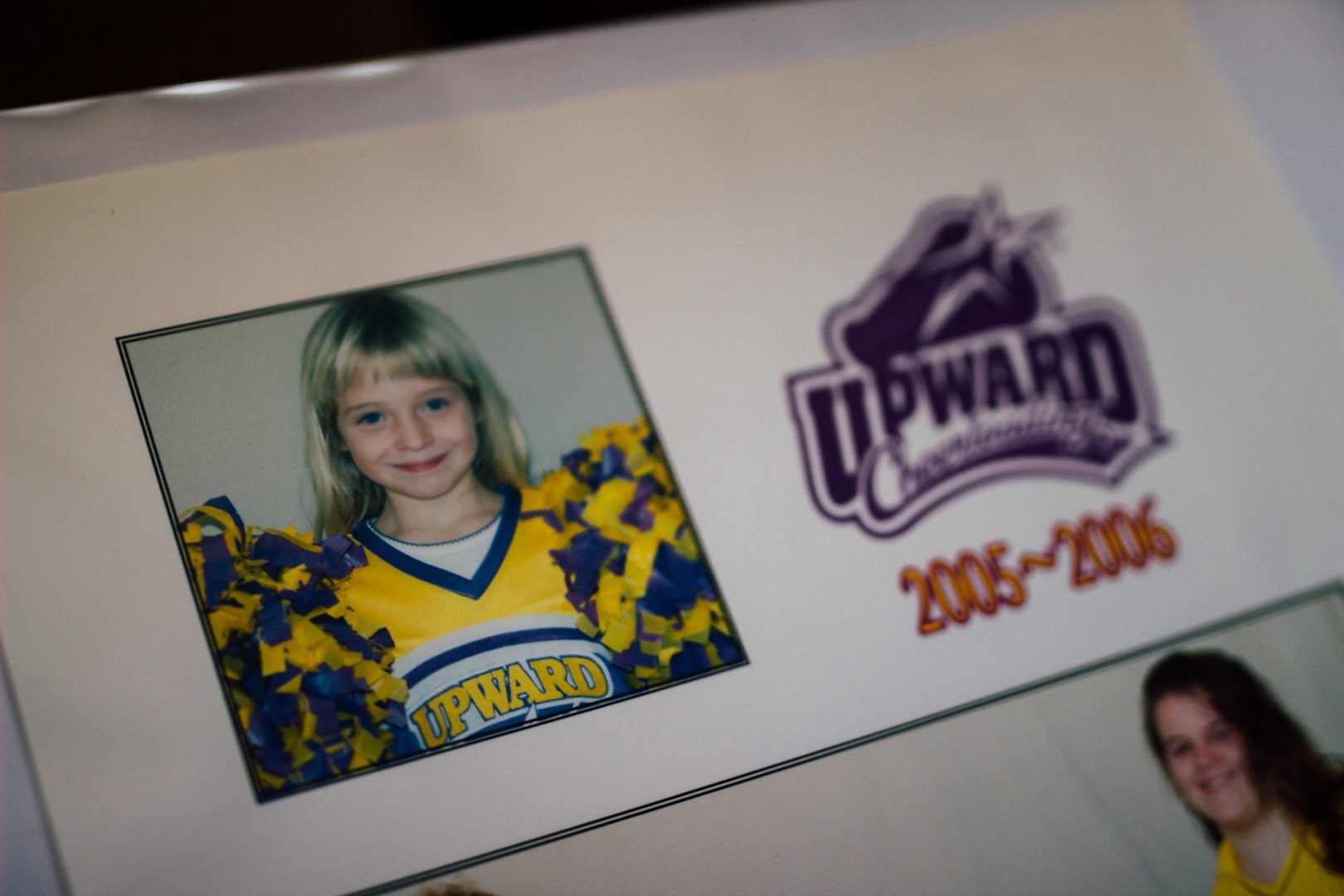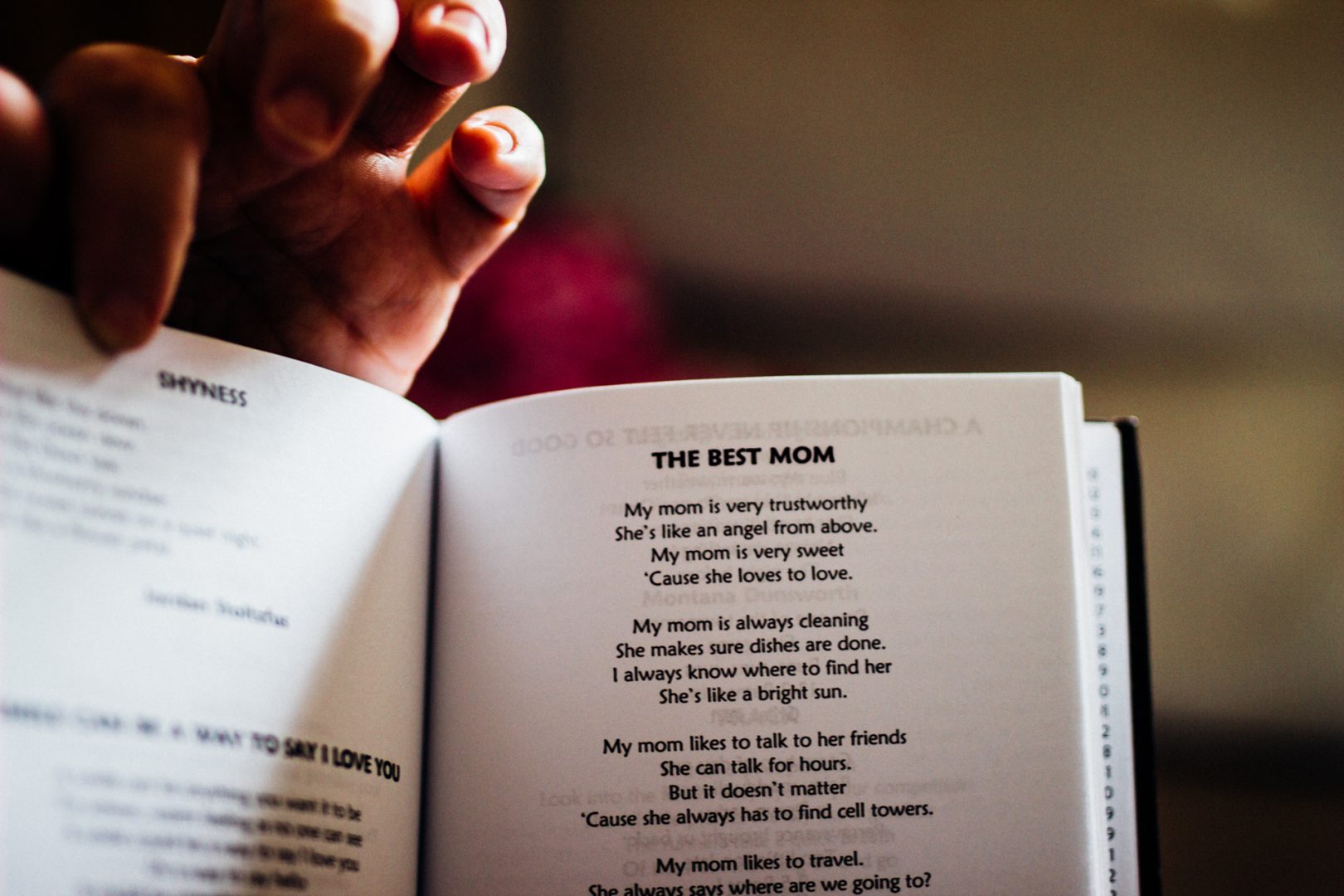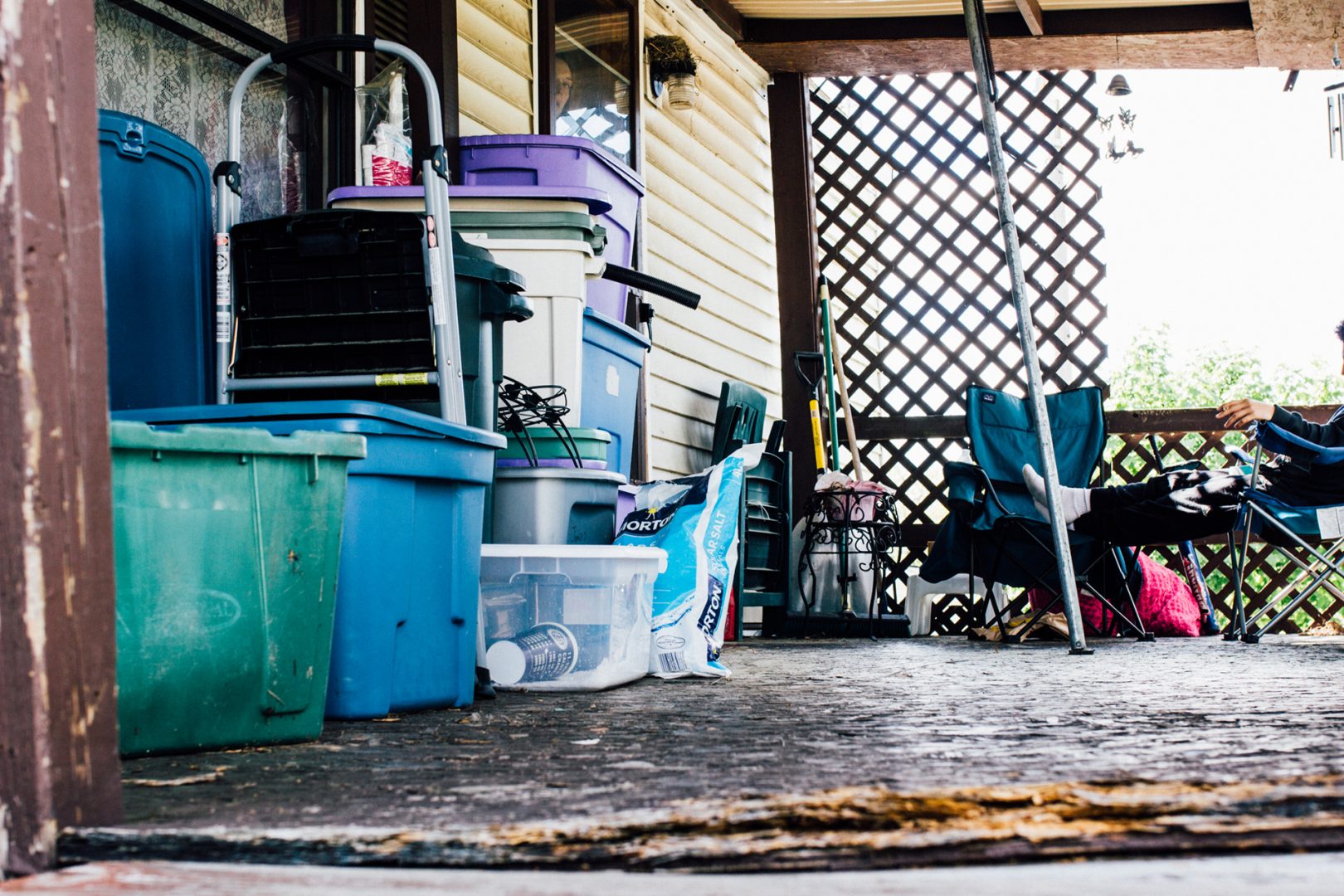NOVEMBER 2016
(Carlisle) — Brandi Keifer wasn’t feeling well as she stood before Cumberland County Common Pleas judge Tom Placey on November 21, 2016.
Dressed in a black Nike sweatshirt with a nose stud, the 17-year-old was sniffling and clearing her throat from a head cold.
Keifer would occasionally tug at her curly blonde hair during the consent decree hearing in juvenile court for simple assault, harrassment and retail theft.
Her mom and dad, separated since she was two years old and since divorced, sat in two seats behind her public defender.
It didn’t make her feel any better that her life was about to change in the next few minutes.
“We’re setting you up to succeed,” Judge Placey told her after handing down a consent decree that placed her on probation for the next six months.
She would have to undergo random drug screenings and mental health counseling, attend a victim awareness class and perform dozens of hours of community service.
The judge also required her to take a test for her GED and make a good faith effort to get her driver’s license.
If she completed all these tasks, her record will be expunged.
This was Brandi’s first appearance in the juvenile justice system, but it wasn’t the first time she found herself in trouble.
Trouble seemed to follow her around since she was in her early teens.
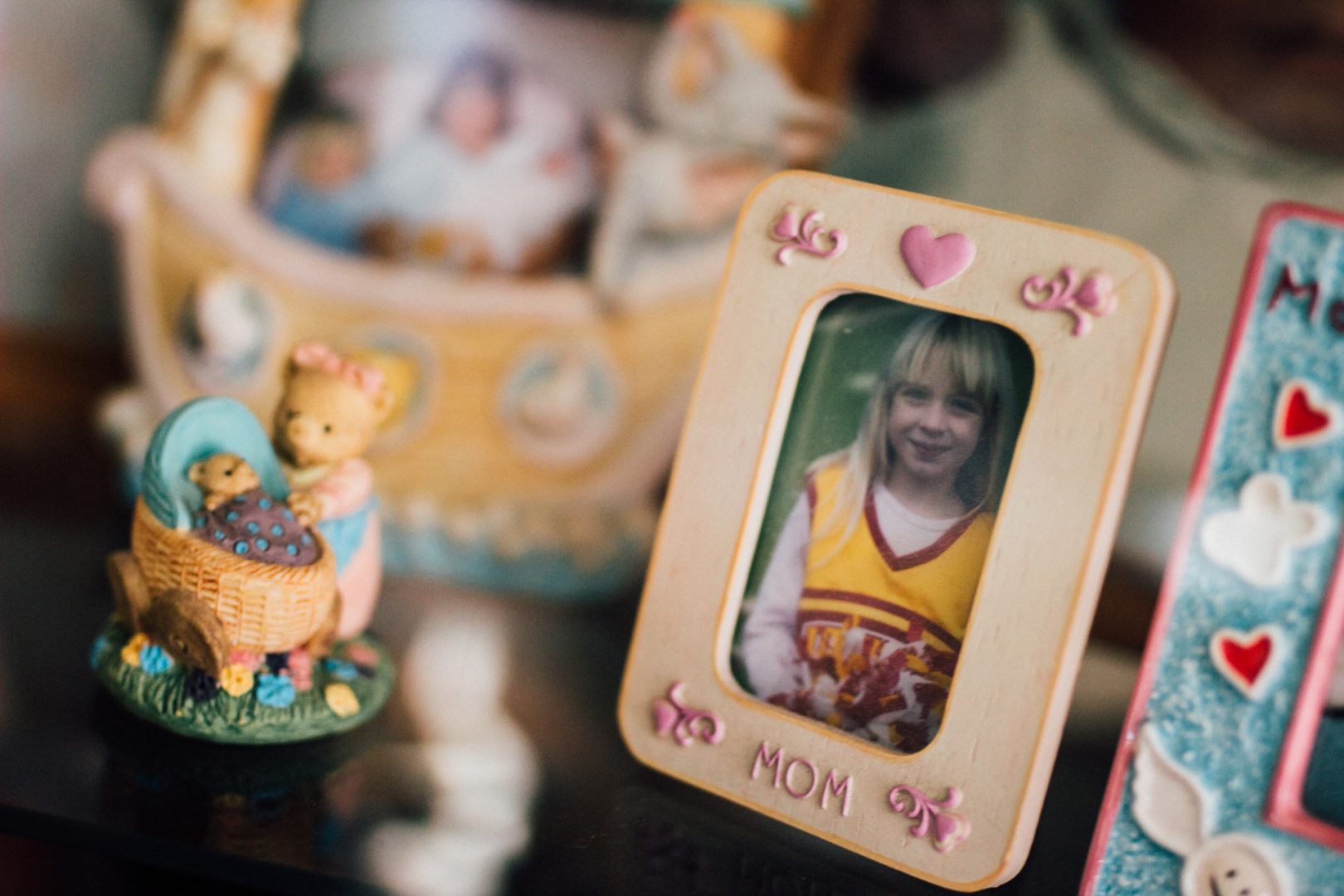
DECEMBER 2016
Ten miles from the courthouse, along winding roads and picturesque views of farms in the Cumberland Valley, is where Brandi, her girlfriend and her mom live in a trailer in North Middletown Township.
A few weeks after her hearing in the middle of December, Brandi forgot to show up for an interview with me.
But, her absence did give her mother, Trisha, a chance to speak freely about her daughter’s troubled past.
“Brandi is a good girl, but she makes bad decisions. She’s challenging and difficult. She’s very sociable,” she said.
Brandi had been in out of Children and Youth Services for drug use since she was 14-years-old — when she took her older sister’s car for a spin.
She’s been in:
Rehab.
Counseling.
Out-of-home placements.
Special schools.
But, nothing seemed to help.
According to Trisha, things spiraled out of control pretty quickly as Brandi’s drug use increased.
She dabbled in weed, cocaine, ecstasy and more.
Trisha even had to rush her to the emergency room when her daughter couldn’t stay awake.
It’s been a rough few years for Trisha Keifer.
She was laid off when her employer’s sister company closed.
Unable to pay her bills while Brandi was in out-of-home placement homes, Abraxas and Ashler Manor and rehab facilities’ White Deer Run and Pyramid, she lost her life savings and her home.
So, she was forced her to live with her elder daughter for nearly a year.
Now, Trisha has a steady job, doing payroll at a midstate company.
Since last June, she’s been in her new home, in a trailer park. Throughout all these roadblocks and challenges, she never thought Brandi’s poor choices would ever reach the point they did.
“That kind of thing and in middle school, we started maybe skipping school a little here and there. But, I don’t think I ever saw the drugs and the stealing,” she said. “I kind of just woke up the day I caught her with the car…I was like ‘What the hell happened with my kid?’ It’s gotten worse since then.”
The craziness came to a head over the course of a few months starting last July.
Brandi had run-ins with the police for underage drinking and retail theft as well as assault and harassment at school.
“I think she got cocky and thought she could get away with anything. She doesn’t think rules apply to her,” Trisha said. “She’s known by all the police departments and her luck ran out.”
The ordeal has taken it’s toll on Keifer, who is sitting on her couch with a box of tissues nearby.
Sleepless nights.
A lot of headaches.
A lot of worry.
“I try to think positive that she’s going to get married, have kids, have a good job and all of this will be behind her never to come again. But, my fear is that she’s going to end up in jail or that I’m going to get a phone call someday that she overdosed or she’s gone,” she said, as tears slowly rolled down her face.
“It’s stressful. I’m tired. Emotionally, mentally and physically tired. It’s not that I don’t care, because I’ll always care and I’ll always love her. If she screws up anymore I’ve come to the conclusion it’s not my fault. I still have to love her, but I prepare for the worst and it’s not easy. It’s a roller coaster of life.”
A week or so later, Brandi is sitting in the living room.
She didn’t forget her interview this time.
Now, it was time to talk to young lady who sitting in the front row of that roller coaster.
Her free fall came to a head on the 10th day of school last fall at Diakon Family Life Services — a school-based substance-abuse treatment program.
It started with a some smack talking from another student.
“She’s younger than me. It’s kind of embarrassing to talk about it. She weighs like 90 pounds. She would say comments that get me in trouble,” she said. “But, I was high constantly, so it was just like, ‘I don’t care,’ The first week of school started and she tried to get me in trouble.”
That not only set off Brandi’s hair trigger temper but a chain of events that led to her probation — even though she claims she warned her teachers about the problem.
Her description goes from bitterness one minute to introspection the next.
“They put me in the classroom and she was literally right outside the door. I was sitting there. This the sad part. I sat here and debated to myself. Is this worth it?” she said recounting the moment that would change her life. “I got tired of debating and I said ‘f#&k it.’ I just walked out there and I beat her up. I regret it so much. I wish I would never have done it. Why did I do it? I don’t know. It messed up my schooling. It messed me being out of the system. It messed up a lot things for me. A lot.”
Brandi is working at a nearby Domino’s Pizza, after dropping out of school.
Going into the juvenile justice system is something she clearly never considered — until it actually happened.
“My first thought was ‘Damn…they’re taking my fingerprints. My fingerprints are in the system.’ It’s just like ‘Damn my fingerprints are really in the system,'” she recounted.
“So, when people look up who used this murder weapon to kill this person like my fingerprints are in with those people. That’s sad. Just the simple thought I’m in the system with those type of people.”
If she completes the conditions of her probation, her record will be expunged.
“I mean this time it’s completely different. Before when I was in the system, it didn’t matter what they said to me. But like now, it’s like what can I do. I don’t want to be on probation when I turn 18,” Brandi said. “I don’t want my charges to be on my record cause I want to be a paralegal. I can’t be a paralegal with charges of assault on me or harassment. I’m doing what I can to get that record erased and for me to be off before I turn 18, I’m doing everything I can.”
Listening to her talk a mile-a-minute, there are glimpses of a teenager with a good heart, but also of someone whose biggest hurdles will be learning how to control her anger and finding a way to stay away from drugs.
“I liked getting high. I liked not having to like be here and not having to overthink everything all the time,” she said matter-of-factly. “I was high and my mind was off things and that was that.”
Just a few weeks into her probation, she’s undergoing drug testing and claims she’s clean.
But, her mother Trisha is shaking her head no.
As Brandi reflects on the current state of her life, she insists it’s time to send the party girl lifestyle packing
“I don’t know. I just don’t. I can’t do it anymore. I don’t see the purpose of it anymore. It’s not helping me where I want to go,” she said. “I think I’m starting to mature and realize that there’s more to the world than just getting high.”
Brandi’s goals are clear.
She wants to get her GED and a driver’s license, plus save some money so when she turns 18, she and her girlfriend can get their own place.
They might seem like normal, everyday goals for most people.
But over the next six months, they are potentially crucial life-changing steps for Brandi — now that she finds herself at a crossroads.
It sounds like a cliche. But, it rings true.
She can go back to her old lifestyle and maybe end up in the adult criminal system — or even dead.
Or
She can make the changes needed to complete her probation and start a path toward a new life.
MARCH 2017
Brandi is sick, again.
She is supposed to take her girlfriend to work, but the two of them are just going to stay home now.
That doesn’t sit well with Brandi’s mom, who lets her know it’s important to be responsible and maintain obligations.
Despite the flare up in tensions between the two, there is good news for Brandi.
She’s back in the classroom. This time she’s taking classes like English, science and social skills at River Rock Academy’s Carlisle campus — an alternative education school.
It’s been a tough adjustment for someone who hasn’t attended school since the early fall.
“I was basically an adult for a year. I didn’t really go to school. I just worked. I just did what I wanted to do,” Brandi said. “Then, I went to school and it was different. The rules were hard to follow.”
If she can avoid missing classes, which has been a big problem for her, Brandi can graduate in May.
That would help her meet one of the requirements of her probation — getting her diploma or GED. But, another one — making a good faith effort to get her driver’s license — hasn’t gone so well.
“Yeah, I failed, because I didn’t go the speed limit and I didn’t stop at the red light before I turned right,” she said “So, I have to go again.”
Brandi is a little less introspective than when we last talked in December.
At this point, her life is — in her words — boring.
“I’m only keeping it that way because I’m on probation. I’m being boring until I’m off probation. That’s when it’s not boring,” she said, cracking a mischievous smile.
But, one thing is clear.
She hates being on probation and insists she’s stayed away from drugs.
Brandi’s looking forward to her 18th birthday on May 3rd and hopefully getting off probation after that.
At this point, however, it’s baby steps.
A month after my visit, she passed her driver’s test, but was fired from her job at Domino’s for missing too much work.
She also saw a potential employment opportunity at the Walnut Bottom Diner fizzle out, though she keeps the reasons vague.
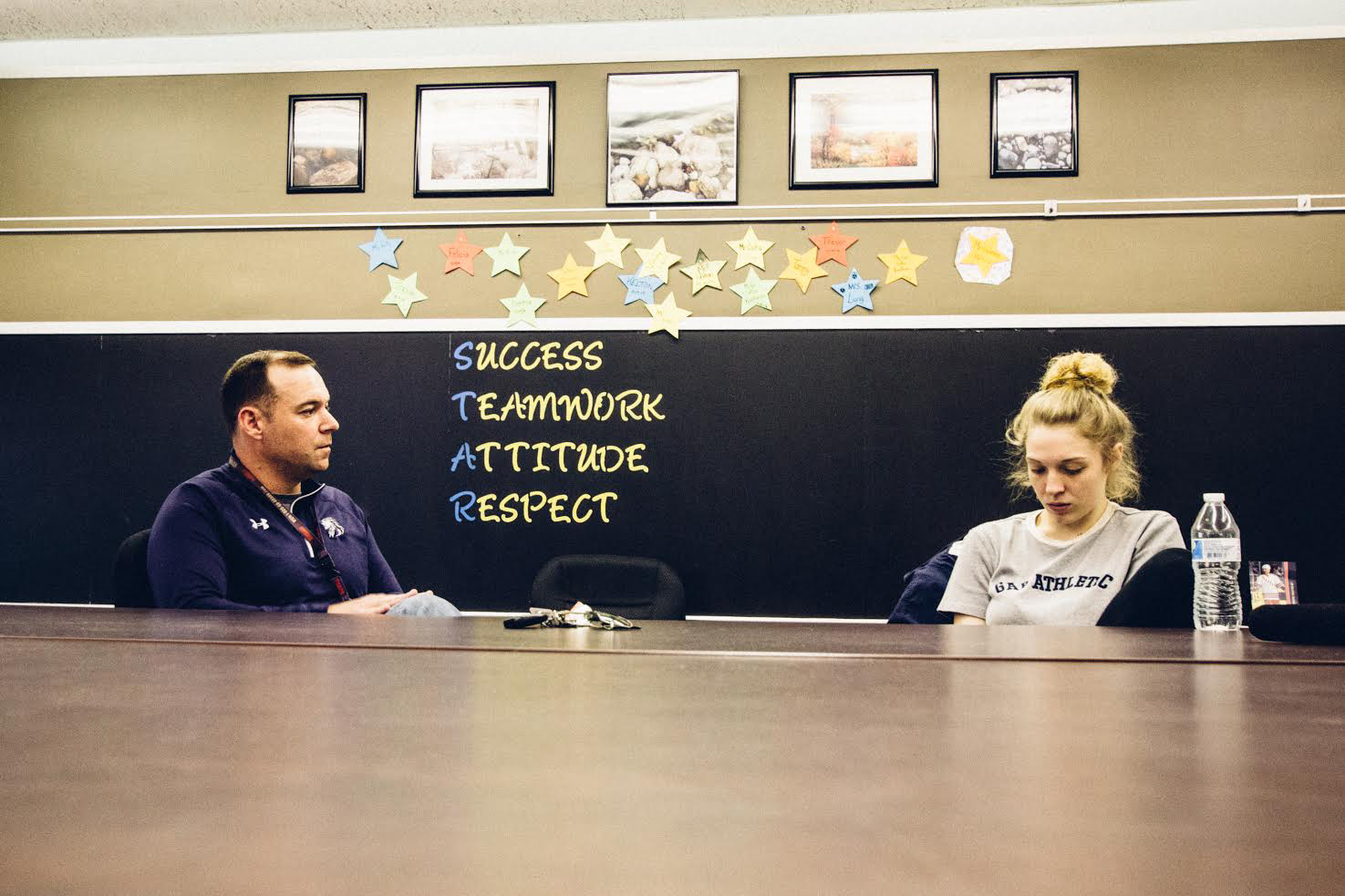
Cumberland County Juvenile Probation Officer Frank Shartle (L) meets with Brandi (R) at River Rock Academy’s Carlisle Campus.
MAY 2017
“Hello, ma’am,” said Bethany Wheeler as Brandi walks into an office at River Rock Academy. “You want to push the door shut.”
Wheeler is one of the people working to help Brandi fulfill her probation obligations, while guiding her toward making some positive lifestyle changes.
She’s a social worker with George Junior Republic, a preventative aftercare program that contracts with Cumberland County’s Juvenile Probation Department and Children and Youth Services.
Wheeler essentially plays the role of a mobile therapist.
“I’ll pick her up sometimes and we’ll drive around and hand in resumes to follow up on applications we put in. We’ve had some issues with truancy, so sometimes it is showing up at the house and giving her a ride to school,” she said. “Helping her set up psychiatric evaluations, so that she can have care after she’s successfully completed probation so that she can continue to be successful. The drug testing too I assist with since I see her more often.”
Wheeler meets with Brandi three times a week and it’s apparent through their conversation they have a good connection.
Brandi goes so far as saying Wheeler is the key to helping her improve her life and get clear of her legal entanglements.
Bethany goes over how to act in social situations that may seem pretty basic, but are important in helping Brandi handle herself better. They discuss things like conflict resolution, communication and anger management.
They discuss an incident that came up recently at school, where Brandi felt like she wasn’t being heard by the staff.
“It’s legitimate to feel frustrated when you’re not feeling like you’re being heard,” Wheeler said. “I don’t know anyone that doesn’t annoy.”
“Especially when I’m trying to reach out for help,” Brandi answered. “That’s what bugs me the most.”
“So let’s talk a little bit about the communication though, because like I said, those are all really legitimate frustrations, but maybe we can work a little bit on the way we’re communicating those things,” Bethany countered.
Wheeler is working with Brandi to develop social skills through practical techniques. She has her practice conversations — like focusing on her tone so Keifer doesn’t come across as sarcastic. Exercises like this will help Brandi be prepared if she gets into a situation she normally may not handle well.
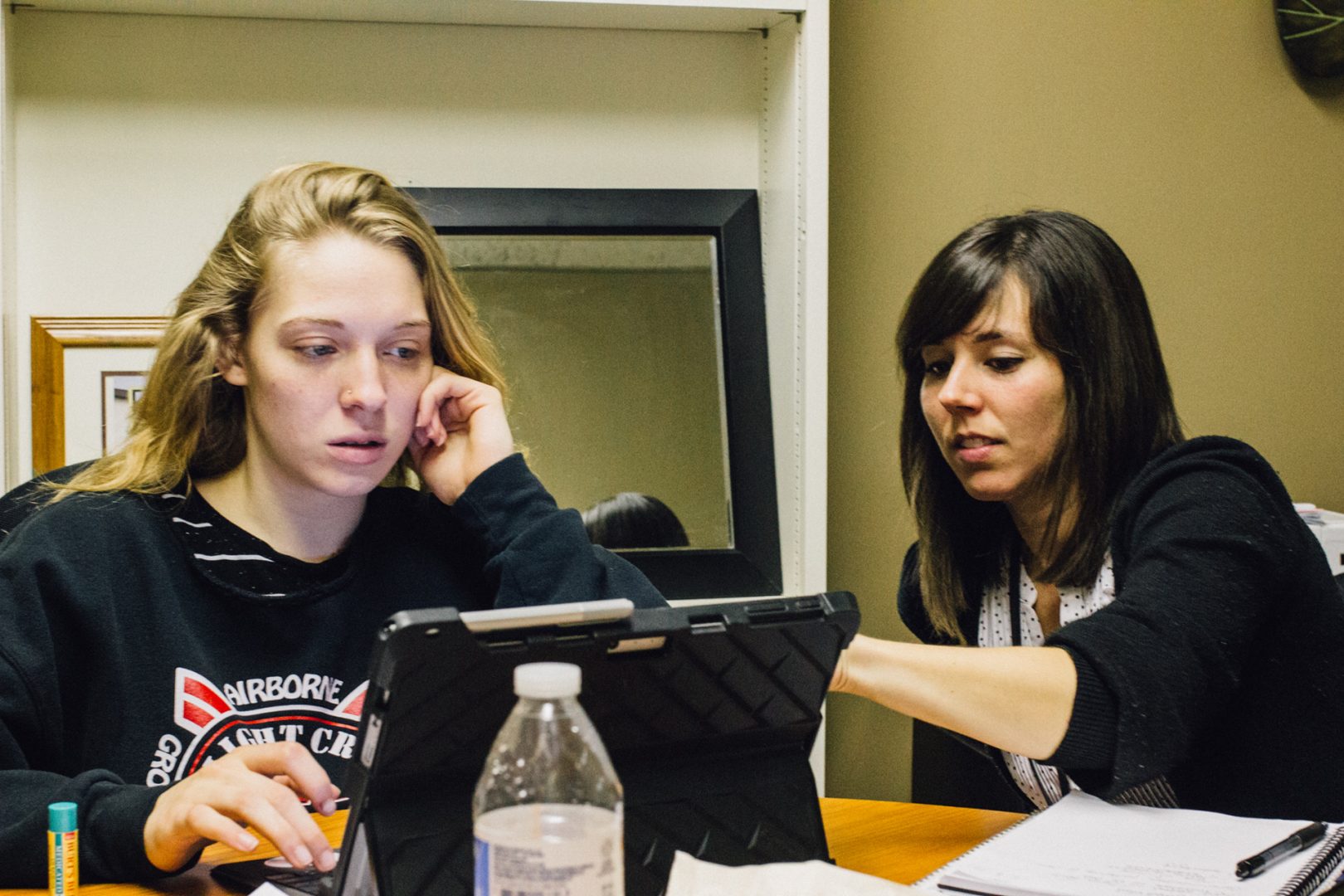

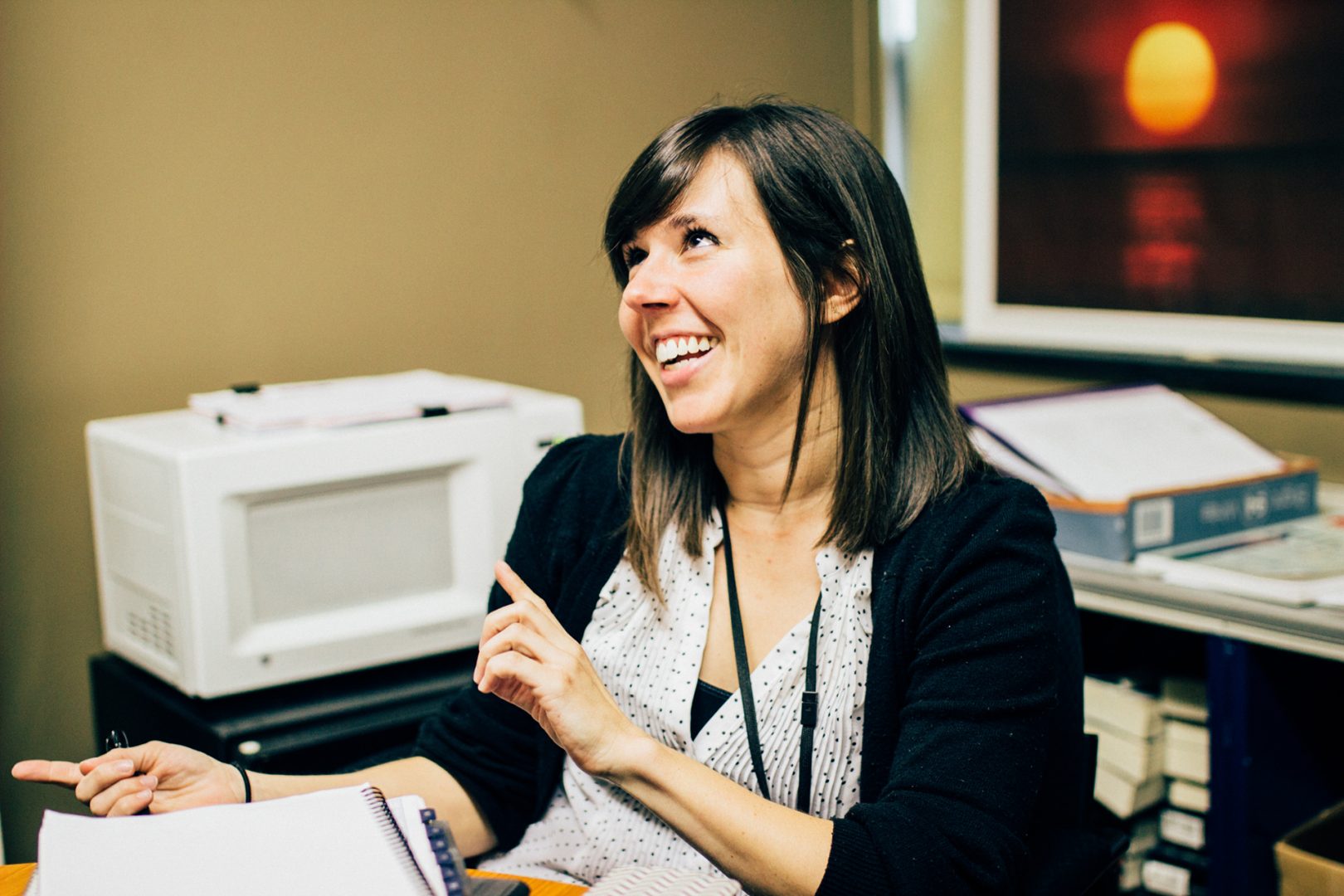
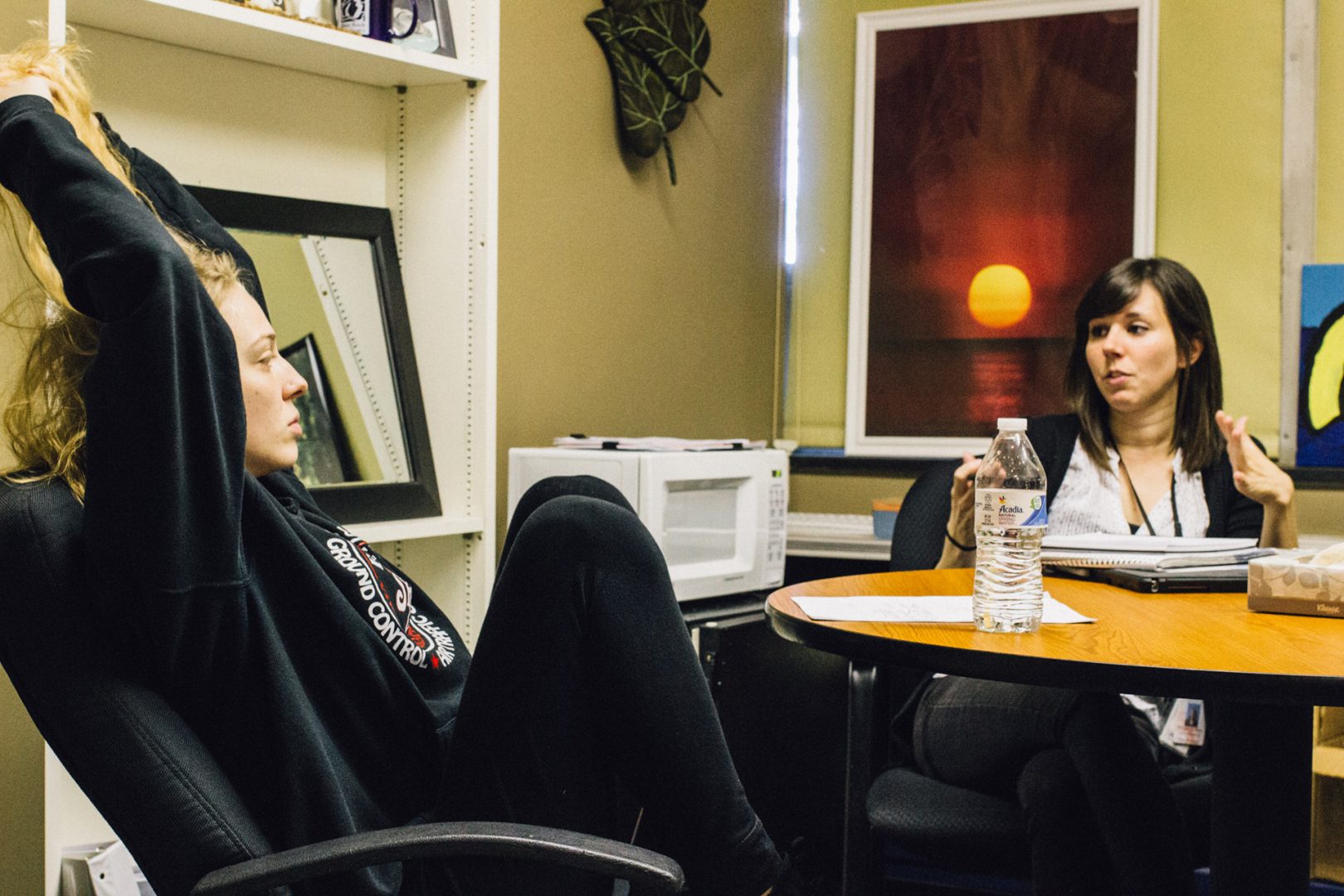
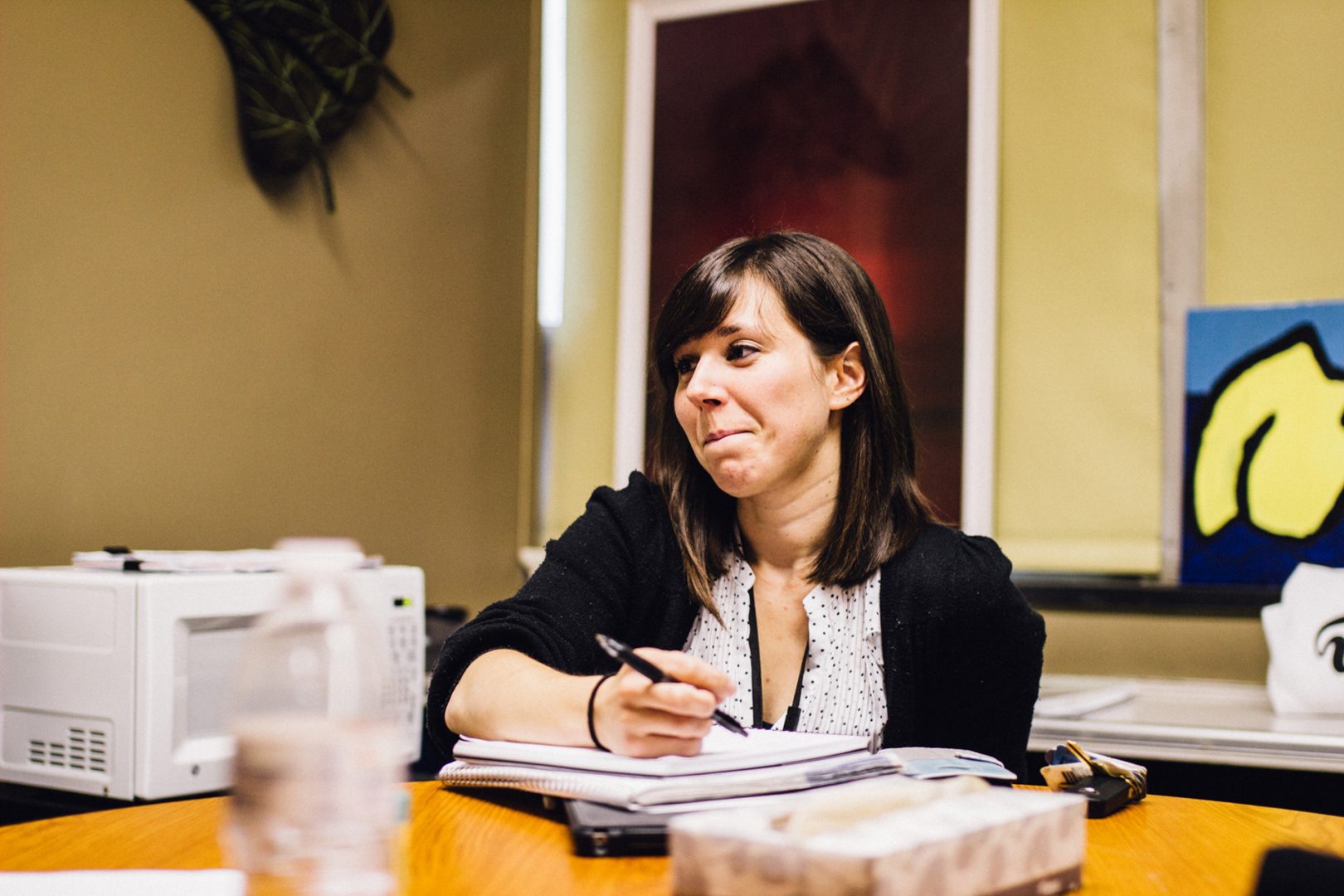

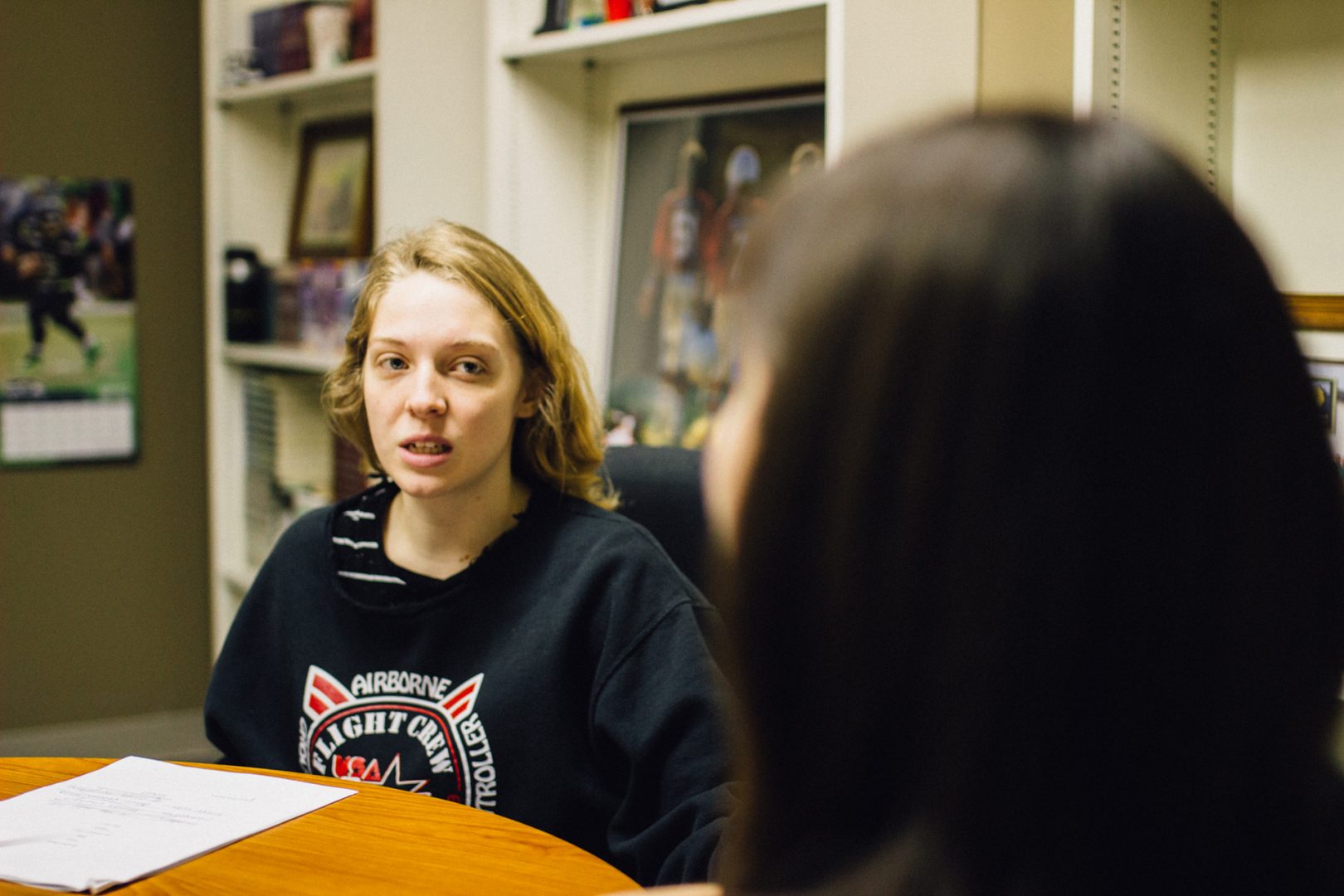
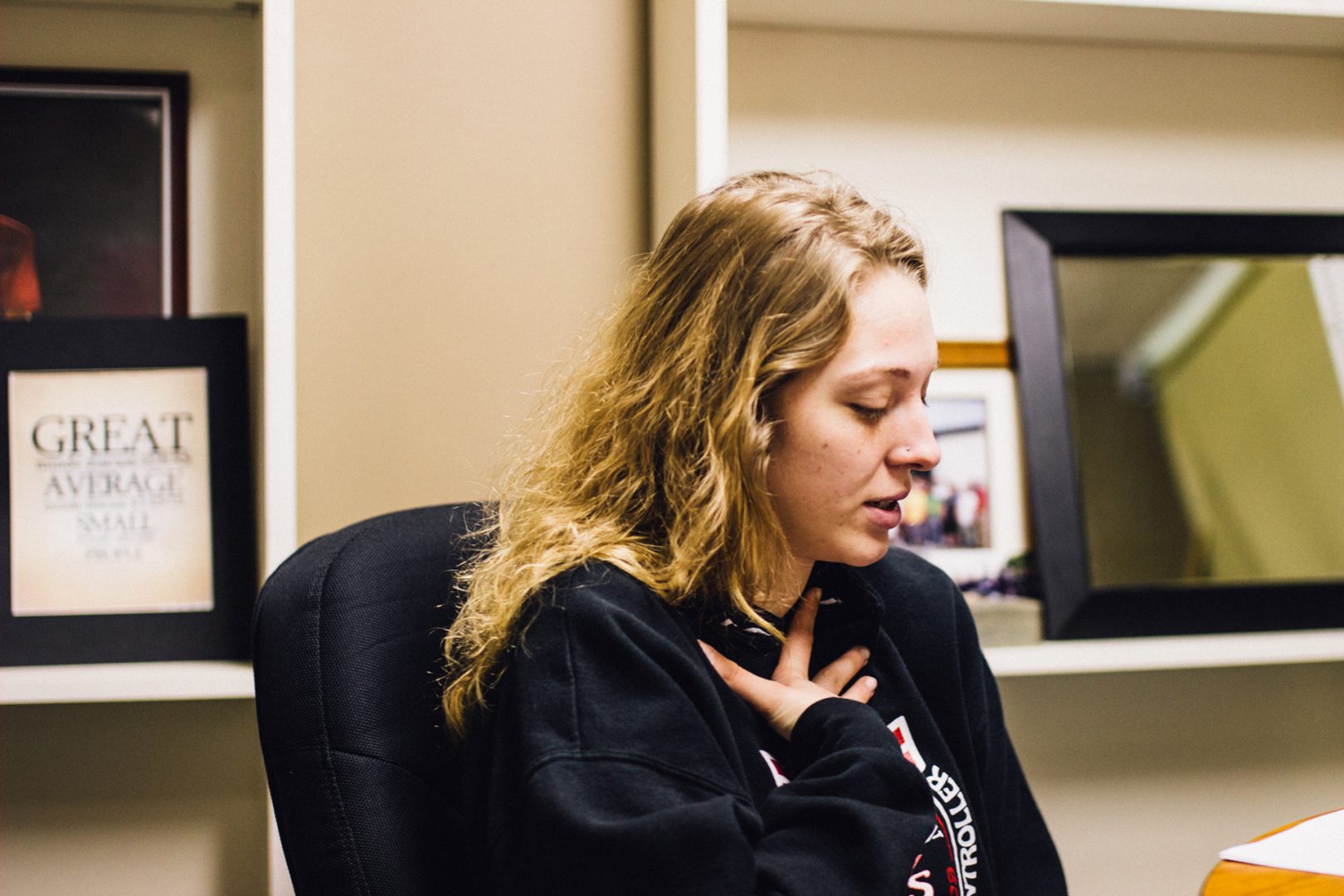
As they talk, some frustration surfaces.
Brandi calls herself “a mess” — like knows what she needs to do to make things better, but just can’t seem to turn that realization into action.
It sparks a conversation, where Bethany offers encouragement and notes it’s natural to feel that way:
Brandi: “I get frustrated with myself. I know all things I need to do. I know how to fix it. I know what’s wrong, but it’s like I don’t do it.”
Wheeler: “So you self-sabotage a little bit?”
Brandi: “Yeah. I hate it.”
Wheeler: “I don’t think you are a mess. A lot of us have a really hard time following our own advice. So, you’re not alone in that.”
This kind of conversation goes on for a good 25 minutes, when talk turns to Brandi’s job search. She put an application in at a Family Dollar Store, but doesn’t remember which one.
They fire up Bethany’s laptop and start working on applying at another store. Then Brandi borrows Wheeler’s phone to make a follow-up call.
Before she dials, Bethany talks with her about what to say and the call goes well.
Brandi then heads back to class.
Wheeler has seen huge improvements in how Brandi handles herself — noting she’s self-motivated and handles being held accountable well.
“I think when I met her, while she presented kind of an angry, tough exterior, I think it really was maybe more at a core of kind of hopeless and feeling like ‘This is what I am, this is the rut I’m in,'” Wheeler said. “I think she’s had some successes and seeing that she can do it and she can do it well when she puts her mind to it. I think it’s given her a little bit more motivation to make changes and it’s shown.”
Keifer is not unlike some of her other clients. Bethany says they are often undersold because they’re seen as troubled and not caring.
That’s a mistake, she notes.
“I think in most kid’s cases they have dealt with things that you’ll never know about and I think that it creates often a tough exterior, because that’s what they have to do to survive,” she said. “I think if more people could be sensitive to that, they might approach kids like that (differently) that might be actually help them change their situation, rather than get stuck in a kind of cyclical situation with crime.”
To Wheeler, Brandi’s path to getting her life back comes down to making better decisions.
“I think a lot of it is going to come down to who she chooses to associate with and who she chooses to be around,” said Wheeler. “I think if she can continue to make the choices that she has been lately and put herself in situations with people that are going to be positive influences, I think that will help her go a long way.”
Clearing probation rests upon the recommendation of another person.
Frank Shartle presses the intercom button outside River Rock Academy to let them know he’s arrived.
He’s Brandi’s juvenile probation officer.
She’s one of 15-20 offenders in his caseload.
He chats with Jennifer Long, the clinical director at the academy about how Brandi has been progressing. She lets him know that today is a special day for Brandi.
It’s her 18th birthday, something that’s not lost on Keifer when she walks in the room.
“It’s my birthday, guys!” she said with a broad smile.
“Happy birthday, Brandi. The big one-eight,” Shartle replied. “What are you going to do?”
Her comeback elicited a few chuckles, “Not go to jail!”
Alert, smiling and clear-headed, this is the best Keifer looked and sounded in several months.
Shartle’s approach is to work with juvenile offenders to get them off probation and make sure their court-ordered requirements are done appropriately and in a timely fashion.
His job gives him a first-hand view of kids in the courtroom, the community, and the classroom at work.
He visits their home and gets a feel for what their dynamic is with their parents.
“During home visits, it can be difficult to find stuff to talk about other than drugs or alcohol. Kids don’t want to be browbeat about this stuff,” he said. “(With Brandi,) I had noticed a bin with baseball bats and a basketball in there and I started out with asking about her, did she play sports? Was she a former athlete? She indicated she used to be both a softball player and a basketball player…and a good one.”
With Brandi, they meet once a week and he acknowledges it’s been challenging at times.
He also works with Wheeler and Brandi’s teachers at River Rock to help her stay on track to close out her probation later this month.
“Your money is paid. The community service is complete. You did victim awareness with Miss Bethany. Really, the only thing left on the docket is a clean drug screen,” he told her. “I’d be wary of your school attendance from here on out, because I was notified by drug and alcohol that one more absence they dismiss you from the program.”
Shartle said he believes he’s built some trust with Brandi and noted she’s been pretty good about being transparent with him, such as telling the truth about her drug use. He’s pleased with her progress — offering her both an encouraging assessment and a cautious reminder…
“Ideally, if you attend the rest of the school year, you may just cross the finish line with a high school diploma, which would be awesome Brandi and completely your own doing,” he said. “Where you go from here is completely up to you.
“So, if I pass the drug screen, I’m basically off?” she asked. “If you pass the drug screen, you and I can seriously sit down and talk about closing you out,” Shartle said, “probably get another drug screen in there because I don’t want you passing the drug screen and then going out and partying like ‘Yeah I passed the drug screen and am going to smoke a fat blunt.’ “I’m not doing that until I’m off probation,” Brandi joked. “Let’s just cross that bridge when we get to it,” Shartles added with a smile.
His words are music to Brandi’s ears. She’s just weeks away from being released from probation — but Shartle does have the power to extend it another six weeks or up to six months if something were to go awry.
“Be smart. Be careful who you are hanging out with,” he warned.
“Oh, there’s no more charges after this. I’m not going to jail and I’m not getting on probation either. It’s not an option,” came the firm reply from Brandi.
Over the last few months, Brandi has made significant progress — getting back to school and passing her driver’s test.
She’s also re-evaluating her lifestyle and choices.
But some big obstacles remain.
She still needs a job, to stay clean and graduate.
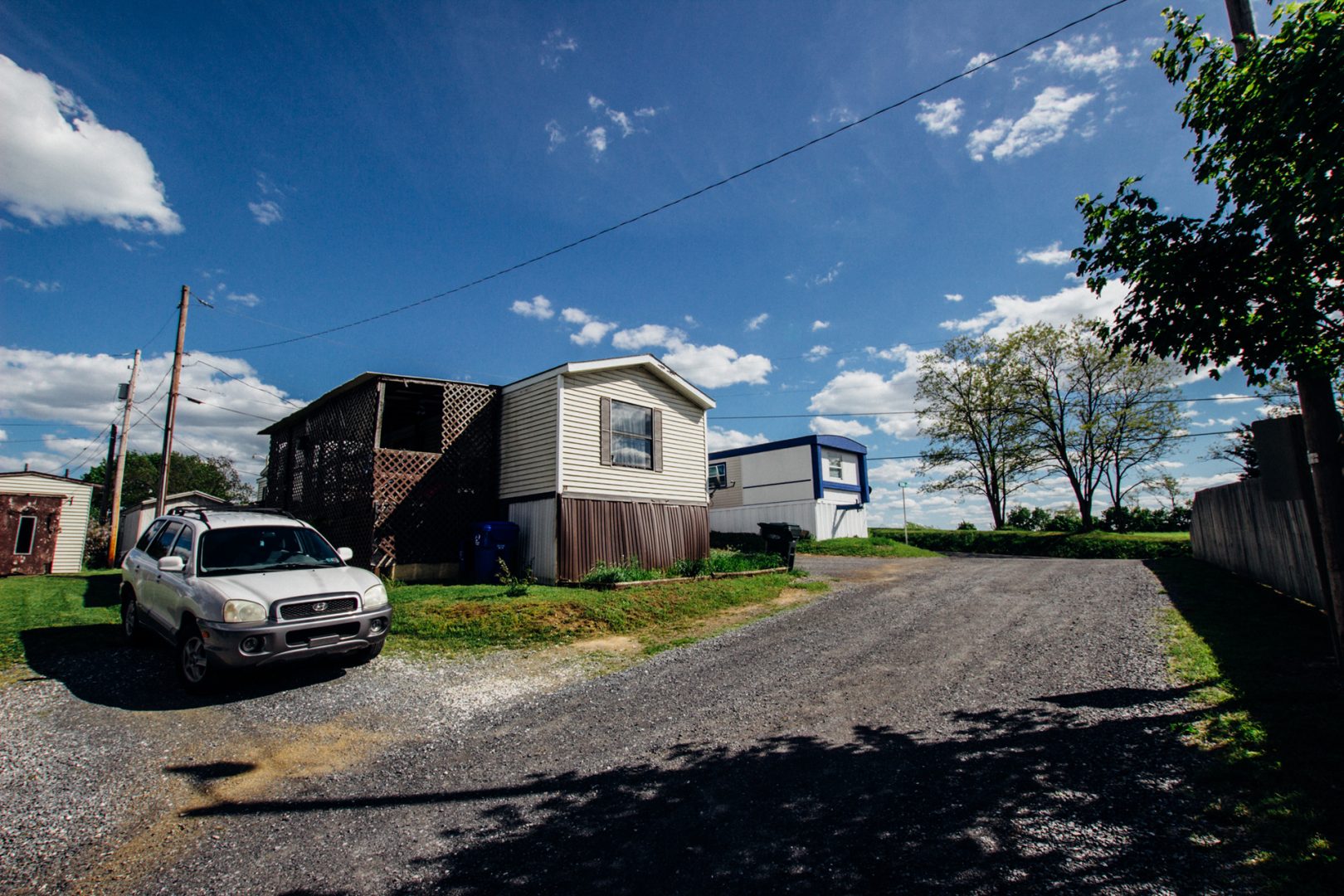
Trisha Keifer’s home in North Middleton Township.
May 2017
The wind chimes on Trisha Keifer’s porch in North Middleton Township are getting a workout on a sunny, but chilly late afternoon.
Inside, her daughter, Brandi, is getting ready to go out to dinner to celebrate her 18th birthday.
She’s smiling from ear-to-ear — and why not?
Brandi has been passing her drug tests and is on track to graduate high school soon.
That means she’s on track to be off probation in just a few weeks
“I’m excited. I’m happy,” she said. “I’m glad I’m not on it for summer for real.”
The past six months have been trying at times for her.
“It’s not fun. I hate it. I don’t like being told what to do and when to do it. I’ve always had to do that but probation is more intense,” Brandi said. “It’s really annoying, but I did it, so I have to do it.”
Trying to stay clean.
Taking drug tests every week.
Fighting with her mom.
Controlling her anger.
“It’s a problem. I really need to work toward my anger and my tone and my attitude,” Brandi acknowledged. “Usually, I’m just going to put my hands on you and not care, but now it’s like, no I can’t do that. That’s not cool.”
Learning how to make better decisions, like as she puts it, “not hanging around druggies all the time.”
“I’ve always said, ‘Oh I’m not going to be like that. Then I woke up and kind of realized that I was on the way to being that,” Brandi said. “Also, I just don’t want to be around that. I just don’t want to be around it.”
But, she’s also realized it’s time to act like an adult.
“I actually think about things. Before I’d just wake up and do whatever it is ‘Bernie’ wants to do. Now, it’s kind of like ‘Okay, well, I’m an adult. I have to do adult things. I have bills to pay. I have to go get my own house, my own car,” she reasoned. “I look at my mom’s house and think, ‘Well okay, I have to buy a couch someday.’ If I want to live comfortably, I need a house. I need those plates. I need those cups. I actually look at literally at every little thing. It’s like every little thing I think like I’m going to have to pay for that.”
Her mom Trisha pulls out some old photo albums from when her two daughters were younger — to her, these books are some of her most treasured possessions.
Trisha Keifer looks through some of her old photo albums from when Brandi was younger.She says in the last few months, she’s seen a change in Brandi and she credits the stint on probation for holding her younger daughter more accountable.
“Brandi’s better. Her attitude’s better. She comes home at a decent time,” Trisha said. “Sometimes, she still has an attitude if she’s in a bad mood or angry about something, but she’s not as bad as she used to be. She’s trying, so that’s a good thing.”
“I do still worry about her when she’s out, because that’s what I do,” she added. “But, I don’t feel as exhausted and mentally broken as I did in December with ‘Brands,’ which is a good thing.”
Brandi has also been a little more respectful, answering Trisha’s phone calls and texts more often and asking about her day when she comes home from work.
Part of that, Trisha believes, is when Brandi hit bottom — not many people stood by her side.
“A few times she said, ‘I thought you’ve given up on me and you weren’t proud of me.’ I think that made her realize too. I told her, ‘I didn’t give up on you. I just couldn’t take it anymore. You had to change and I’ve done everything to make that happen and you chose not to,'” Trisha said. “So maybe I gave her the tough love, maybe that was enough. Maybe it was probation. Maybe it was both. I’m not sure.”
Now, Trisha wants to see what comes next. She is hoping to see Brandi embrace more responsibilities, such as getting a job, learning how to cook and earning an education.
But, most importantly, Trisha is optimistic for the first time in a long time.
“She’s more like the old Brandi than what she was the last few years. Always nice and innocent,” she said. “She was always talkative and fun and wanted to do things. She wasn’t so mean all the time. She’s more the little girl I remember.”
Like the little 10-year-old who wrote a poem she called the “Best Mom:”
“My mom is very trustworthy. She’s like an angel from above.
My mom is very sweet, ’cause she loves to love.
My mom is always cleaning. She makes sure the dishes are done.
I always know where to find her. She’s like a bright sun.
My mom likes to talk to her friends.
She can talk for hours.
But, it doesn’t matter, ’cause she always has to find cell towers.
My mom likes to travel. She always says, ‘Where are we going to?
Then I wander off and she says, ‘Come here, you.
I sit beside her, then I say, ‘I love you.
Then I get a blanket, then she says, ‘Thanks, boo.'”
Trisha says it was always about never giving up on her daughter.
“You have to be their mother before their friend. You have to steer them in the right way, no matter how bad they are, no matter how much they do wrong. You can’t turn your back on them just because they get arrested or sent away. You have to keep pushing them to do the right thing because eventually they’re going to hopefully listen to you and you’ll always have to love them,” Trisha said. “Brandi’s put me through a lot, but I wouldn’t trade her for the world. I just hope she gets better and learns from her mistakes and becomes a better person…the person I know she can be.”
Brandi is looking forward to getting her freedom back, but also knows it’s not an easy path ahead. She now finds herself thinking about what she would tell other kids who are facing the juvenile justice system — and it surprises her. They’re the words she was so annoyed by over the last three years, “Take it from me.”
“I hated hearing that. ‘Oh you don’t know what your talking about. That’s you. I’m different,'” she said. “Sooner or later, you’ll realize what is all going on and what’s all happening and how fast it happened and you’re going to regret it. You’re going to regret the hell out of it.”
Brandi isn’t sure she wants to go to college right away. She’s well aware of risking not wanting to go back at all, if she waits too long. One big problem? She doesn’t have any money for classes.
“I should have been saving up when I was younger, but instead it went to straight to drugs. Now, I have no car. I have no dollars to my name,” she said, with a tinge of frustation. “I’m 18 years old. I can’t even pay a phone bill. I don’t have any money. I slacked off, spent it on drugs, never saved up, kept getting sent to places.”
Everyone who I talked to about Brandi said she’s great with younger children and older adults. Trisha even relayed a story about how she helped one man who couldn’t figure out how to work the soda machine at a fast food restaurant when no one else would. Brandi is hoping to channel her ability to connect with people to become a probation officer — because sharing her vast wealth of experience could help kids who may be struggling too.
“If a kid’s listening that they’re like me, I want them to get through it a lot earlier than later because it’s so much harder. Catch it before you’re too old, it’s too late and your life is already ruined,” she aid. “Luckily, I have my mom who stayed by my side and family that stayed by my side. A lot of people don’t have that and they leave you and you literally are stuck with nothing. It’s hard because you’ve already burned so many bridges and no one wants to help you. Because you are a very nasty person and you don’t even know it. Try to change before it’s too late.”
It’s time for Brandi to head out to her birthday day dinner with her dad when she leans over to Trisha and whispers, “Bye, I love you,” while kissing her forehead.
Brandi Keifer has spent the past six months in the Cumberland County juvenile justice system.
She faces significant challenges in the coming weeks and months, mainly how she handles to her new life and if she keeps making positive changes.
Her support system throughout the process — from her mother to her mobile therapist to her probation officer — has helped her.
That doesn’t mean she’s turning completely around and will be on the straight and narrow going forward.
But, Brandi deserves credit for accepting the responsibility of her actions and working to improve both her life and mindset.
Her last day of school is today and she is set to graduate next Thursday.
Brandi’s PO Frank Shartle says she’s testing clean for drugs and recently had a second interview for a job.
Because of that progress, he looks to close her out of probation — perhaps as soon as a week from today.
